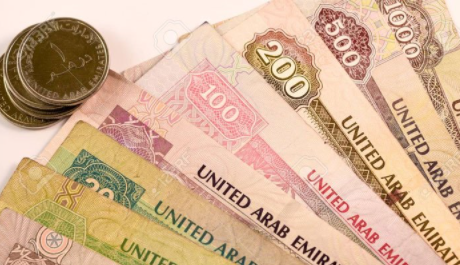Delving into the mathematics of the costs involved if one decides to retire in the UAE
Dubai: For many people, the retirement destination might be their home country. However, some people may decide on a different country owing to lower costs of living, healthcare and better housing. Based on the destination, money goals for retirement changes.
Although retiring rich is on the minds of most expatriates, statistically it’s been observed there are very few who manage to save and grow their money well enough to retire in the Middle East, because for expats supporting their families back home it can be a struggle.
Expats in the UAE have a prime opportunity to earn and save tax-free while enjoying a high quality of life. HSBC’s Expat Explorer Survey of 2019 ranks the UAE ninth overall among best countries to live and work in for expatriates. Given that UAE residence is contingent on employment for most, preparing for retirement either in one’s home country, the UAE, or another country is critical.
In the past decades it has been evident that living in any of the Gulf States (GCC), or any country worldwide, it can be expensive when it comes to cost of living. Moreover, if there’s anything the current dire pandemic circumstances has reiterated, it is that being directly employed can’t be considered permanent.
So, even if you’re 20 years old and starting on your first job, or 50 years old and close to wanting to retire in a decade, matter experts continue to recommend making financial targets for retirement at the earliest. However, the questions this article tackles is how much you should start saving and what age or what time period is considered ideal when it comes to saving for retirement?
Do you have enough saved up for retirement?
According to an independent online survey by UK-based asset manager Schroders – with 25,000 people who invest for retirement from 32 locations around the globe – those aged between 51-70 years old who have not retired are the most likely to be uncomfortable as to whether they will have enough to last.
Among non-retired people, access to information about how much money they need for their desired lifestyle – and likely living costs in retirement, were the top two factors that would convince them to save for retirement, the Schroders survey further showed.
Recent research also shows those aged between 24 and 41 (millennials) years now have better retirement plans, compared to those who are older than that. The average UAE millennial earns about $40,000 annually (Dh146,918), which translates to a monthly salary of Dh12,243.
According to a Global Survey by Natixis, a French investment bank, Middle East millennials only save about 11.4 per cent (Dh16,700) of their annual income for retirement, compared to another survey which shows that millennials worldwide save about 15.9 per cent (Dh23,300).
On a separate note, as per the Natixis survey, millennials aspire to save 20 per cent as per one of the leading UAE based banks, on a par with their global peers and they prefer short-term investments over the long term. As per the Schroders survey, a third of people take less risk with their retirement savings than with their personal savings, whilst a quarter of them take the opposite stance.
For many, retirement is a comfortable bank deposit account while for others it may be a valuable set of assets such as property which could make income or be sold for profit. While there is no certain method to create a sustainable retirement nest, there are diverse options available, when it comes to investing for your retirement.
How much should you be saving for retirement?
Firstly, planners say you need to think how much you want to live on in retirement, is either at an affordable cost of living in, let’s say Vietnam or Thailand, or a much pricier lifestyle, for instance, in New York or Hong Kong. One should then multiply that by 25 and that is how much you need invested in a portfolio of stocks and bonds to retire, on an annual basis, multiple matter experts evaluate. This amount will also then have to be adjusted for inflation and readjusted if your situations change.
For instance, based on the Global Retirement Index in 2020, living in Vietnam costs an average of $1,500 (Dh5,509) a month for a couple of people. For one person, this would mean Dh2,752 a month and Dh33,030 a year. Multiplying this by 25, as per the above expert recommendation, would mean a goal of Dh825,750 for retirement without inflation.
On the other end of the spectrum, it costs roughly $4,800 (Dh17,631) a month for a couple living in New York. For one person, this would mean Dh8,815 a month and Dh105,780 a year. Multiplying this by 25, as per the recommendation, would mean a goal of Dh2.6 million for retirement without inflation.
For every 10 years retirement is away, multiply the portfolio size by 1.2 to account for inflation. If you have real estate income, you can subtract that income from your retirement expenses so you need a smaller investment portfolio.
For a 40-year old who wants to build up a nest egg for Vietnam, for example, would need Dh1.3 million on retirement (at 65) in invested money (accounting for inflation for 25 years). This would mean monthly savings and earnings amounting to Dh4,360 each month.
We used online calculators to find out what the ideal saving/earning percentage should be for a person who is currently 30 years old with zero savings and currently earning Dh10,000 monthly now – who aims to save Dh1 million when retiring at 65 years old. About 24 per cent (Dh2,400) of his or her currently monthly income should be saved now to retire with Dh1 million at 65, as per calculations.
Expat prospects of retiring in the UAE
Planners reiterate that putting aside recurring small amounts with a conservative rate of return won’t be the best use of your money if you’ll be working till you’re 60 or 65, considering one living in a tax-free environment in the UAE.
So to answer the key question of how much should you be saving currently to retire in the UAE, depends on a few conditions, which are elaborated in this article.
How much should you save now to retire in the UAE?
So, how much should you be saving now to retire in the UAE. Keep in mind that retirees spend less than their last drawn annual income because responsibility for saving and expenses reduce after retirement.
In the years following retirement, 85 per cent of annual income each year is considered an average starting point for planning savings. However, if you plan to retire in an expensive city or intend to travel, this percentage can go as high as 100 per cent of your last drawn income.
If one intends to retire at the age of 65, and for easier calculation factoring the global average life expectancy currently averages at 80, saving at least for a minimum of 15 years post-retirement is vital.
One of the conditions for UAE’s five-year retirement visa, is to have cash savings of about Dh1 million. To live in the UAE beyond a five-year term one would have to save more than the required Dh1 million, while factoring in the cost of living in the emirate.
Factoring in how much it costs to live in the UAE
Salary monitoring platforms indicate a person working in the UAE typically earns around Dh21,500 per month, with salaries ranging from Dh4,500, being the lowest, to Dh99,000. This is the average monthly salary including housing, transport, and other benefits – which translates to an annual pay of Dh258,000.
According to data from Numbeo, a crowd-sourced global database which aggregates statistical data pertaining to cost of living, rent, etc., monthly costs for a single person costs Dh3,500 without rent, while rent averages between Dh2,500 to Dh7,000 a-month – varying considerably on the type of accommodation, multiple property platforms indicate. Then total expenses then ranges between Dh6,000 to Dh8,000 a month, or about Dh85,000 for living a year in UAE.
So, the cost of living in UAE for about 15 years post-retirement – at the above current rates – can be estimated at Dh1.3 million. This cost should be factored in when retiring in the UAE.
Moreover, given that you need to have at least have Dh1 million in savings when applying for five-year retirement visa in the UAE, and re-apply for the visa every five years if you want to continue in the country, such an amount of savings should be maintained each time you re-apply for the visa.




